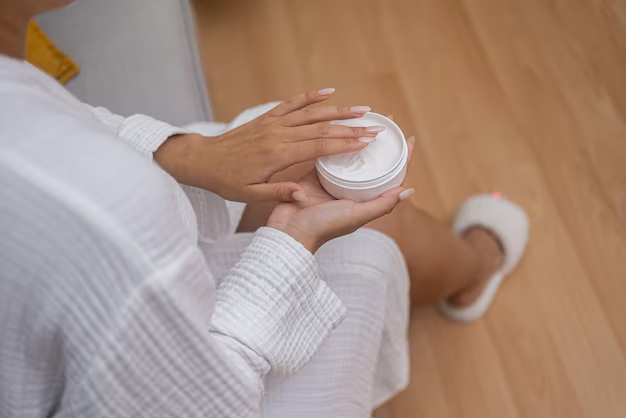Discovering Relief: What Really Helps Eczema?
Eczema, often a persistent and uncomfortable skin condition, affects millions worldwide. Characterized by itchy, inflamed, and sometimes painful patches of skin, eczema can significantly disrupt daily life. However, understanding what helps eczema can offer much-needed relief and comfort. This article delves into effective strategies that can ease symptoms, transitioning through various natural remedies, lifestyle changes, and practical tips that empower you to manage eczema more effectively.
Understanding Eczema
Before exploring solutions, understanding what eczema is and what causes it is crucial. Eczema, or atopic dermatitis, is a chronic inflammatory skin condition. It's most commonly seen in children but can affect people at any age. The exact cause isn't fully understood, but it's believed to result from a combination of genetic, environmental, and immune system factors.
Common Symptoms and Triggers
Eczema manifests in various ways, which could include the following symptoms:
- Intense itching
- Dry, sensitive skin
- Red, inflamed patches
- Rough, leathery, or scaly skin
- Oozing or crusting
Triggers can vary greatly but often include:
- Environmental factors: Extreme temperatures or humidity levels
- Irritants: Synthetic fabrics, soaps, detergents, and perfumes
- Stress: Emotional stress can exacerbate symptoms
- Allergens: Pet dander, pollen, and dust mites
Strategies for Managing Eczema
With eczema, proactive management of the condition can significantly improve quality of life. Here are some effective strategies:
Moisturizing Regularly
Keeping skin moisturized is perhaps the simplest and most effective way to manage eczema. Moisturizers help retain skin's natural moisture and create a protective barrier. Opt for fragrance-free, hypoallergenic products to reduce irritation.
Types of Moisturizers
- Lotions: Light and easy to apply but may not offer lasting hydration for severe eczema.
- Creams: Thicker than lotions, providing a stronger moisturizing effect.
- Ointments: Generally the most effective for eczema, as they are thick and maintain moisture.
Establishing a Skin Care Routine
Maintaining a consistent skincare routine can help manage eczema symptoms. This routine might include:
- Gentle cleansing: Use mild, unscented cleansers instead of soaps.
- Warm baths: Short baths with colloidal oatmeal can soothe itching.
- Pat drying: Avoid rubbing skin with a towel, as it can irritate sensitive skin.
Identifying and Avoiding Triggers
Identifying specific triggers is key to managing eczema. Consider keeping a diary to track environmental conditions, diet, and activities, which could reveal patterns relating to flare-ups. Once identified, avoiding these triggers can drastically reduce symptom severity.
Implementing Stress Management Techniques
Stress can often exacerbate eczema symptoms. Incorporating stress-reduction techniques may help in managing symptoms:
- Deep breathing and meditation: Helps in calming the mind.
- Regular exercise: Physical activity can reduce stress levels.
- Quality sleep: Crucial for immune health and reducing stress.
Exploring Natural Remedies
Many people seek natural remedies as a complementary approach to managing eczema. While results can vary, some have found relief in the following:
Aloe Vera
Aloe Vera is renowned for its soothing properties. When applied to the skin, it can help alleviate itching and reduce inflammation. Opt for pure aloe gel to avoid additives that might irritate the skin further.
Coconut Oil
Coconut oil is a popular natural moisturizer, rich in anti-inflammatory properties. It can be applied directly to the skin, helping to hydrate and protect against infection due to its antibacterial qualities.
Honey
Known for its antibacterial and anti-inflammatory properties, honey can be used on eczema lesions to provide relief. It's essential to use raw or medical-grade honey to ensure purity and effectiveness.
Dietary and Lifestyle Changes
Your diet and lifestyle can play a significant role in the management of eczema.
Anti-inflammatory Diet
An anti-inflammatory diet rich in omega-3 fatty acids, anti-oxidants, and probiotics can benefit your skin. Consider incorporating:
- Fatty Fish: Salmon, mackerel, and sardines are excellent sources of omega-3s.
- Fruits and Vegetables: Green leafy vegetables, berries, and fruits are packed with antioxidants.
- Probiotics: Yogurt and fermented foods can support gut health, which is linked to skin health.
Maintaining a Healthy Lifestyle
Creating a balanced lifestyle contributes to overall health and eczema management:
- Regular exercise: Improves circulation and reduces stress.
- Hydration: Drinking enough water is vital for healthy skin.
- Adequate sleep: Supports immune function and overall wellbeing.
Practical Self-Care Tips
In addition to the above approaches, consider these practical tips for easing eczema symptoms:
- Wear soft fabrics: Opt for cotton or silk, avoiding wool or synthetic materials.
- Use a humidifier: Adds moisture to the air, particularly in dry climates.
- Sun protection: Protect skin from UV rays to prevent further irritation.
Seeking Professional Support
While this article provides various strategies to help manage eczema, it's important to seek professional guidance if needed. Dermatologists or healthcare professionals can offer insights into specialized treatments and might prescribe medications for more severe cases.
Overall, managing eczema involves a proactive approach, combining lifestyle adjustments, skincare, and awareness of triggers. By adopting these practices, individuals can significantly alleviate symptoms, leading to clearer, healthier skin.
Key Takeaways for Eczema Management:
- 💧 Moisturize regularly with ointments or creams to lock in skin moisture.
- 🔍 Identify triggers like allergens and stress, and avoid them when possible.
- 🌿 Embrace natural remedies like aloe vera and coconut oil for soothing relief.
- 🥗 Adopt a healthy diet with anti-inflammatory foods such as fatty fish and plenty of fruits and vegetables.
- 💪 Exercise and manage stress to support overall skin health.
- 💤 Prioritize sleep and keep a consistent skincare routine for maintenance.
By understanding and implementing these strategies, individuals with eczema can take control of their condition and experience relief from symptoms.

